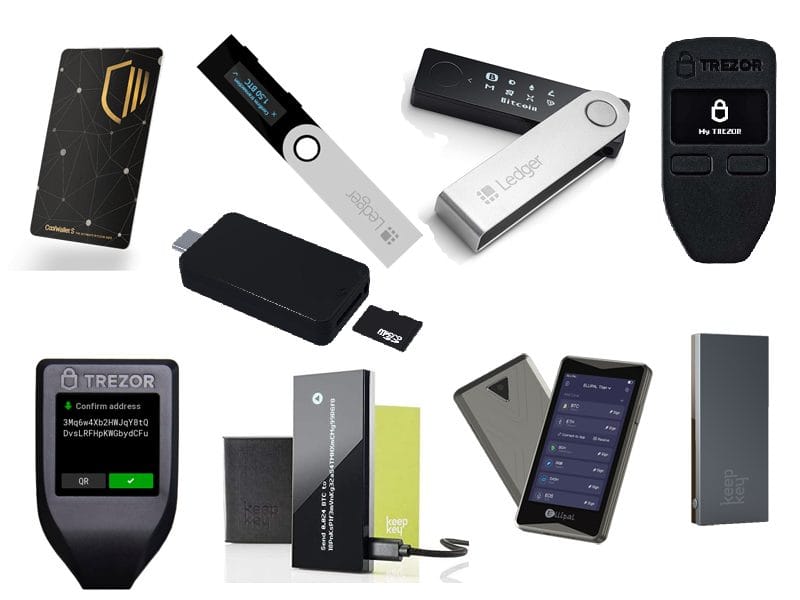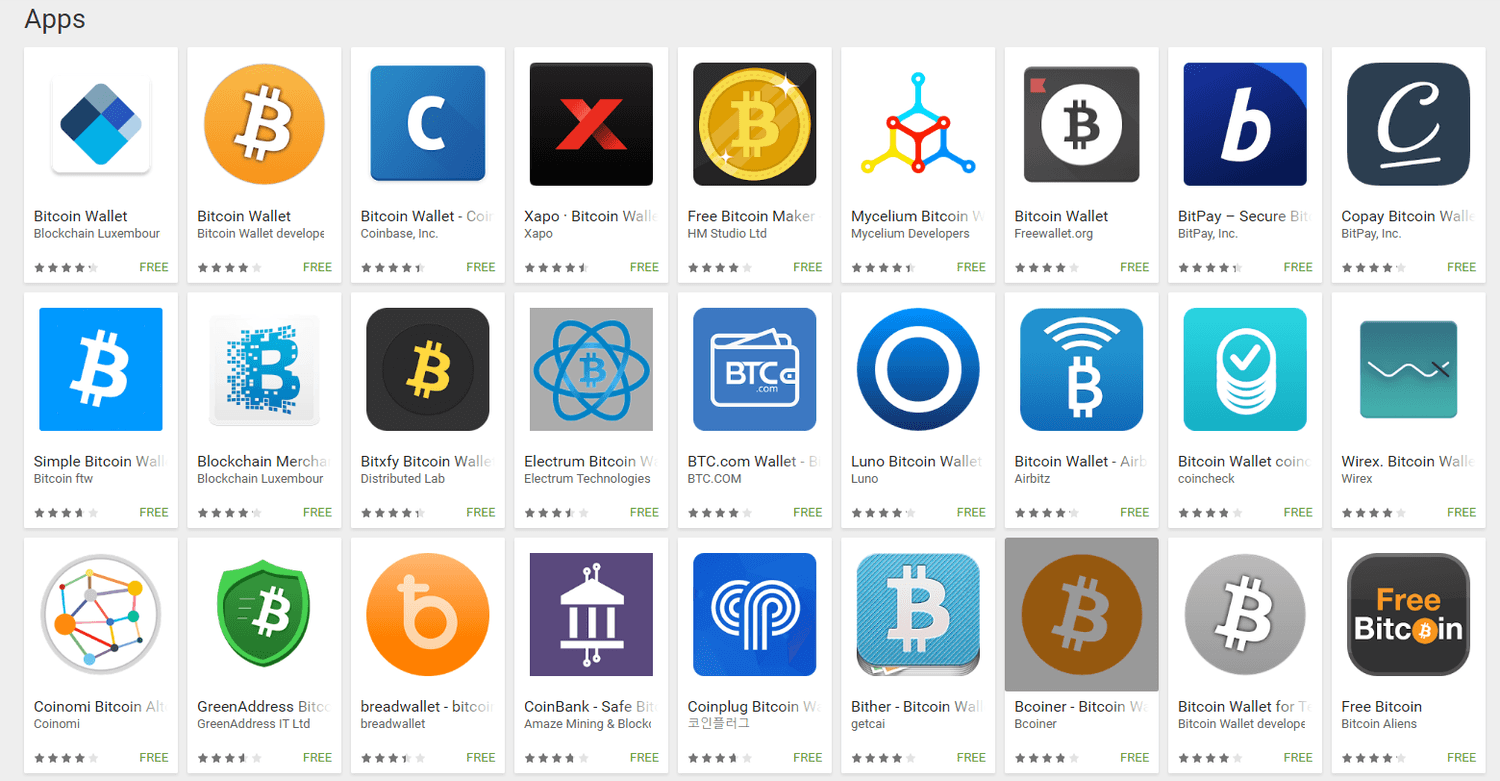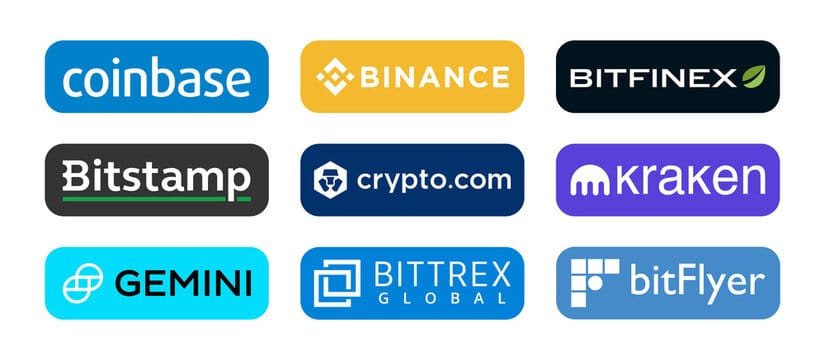How to Set Up a Bitcoin Wallet
After hearing about Bitcoin and choosing to invest in it, the next thing people want to know is how to set up a Bitcoin wallet. Just like a physical wallet or bank account, a Bitcoin wallet is essential for storing, sending and receiving bitcoins.
A Bitcoin wallet has two primary functions:
- Store your private keys for approving and signing transactions (similar to your secret bank code)
- Assign your public address to receive funds (similar to your bank account number)
The best bitcoin wallets allow you to maintain access to your private key or seed phrase. Using any of these, you can easily recover your funds even if you lose the device, or delete the software application.
Using that knowledge as a background, we'll now go over the types of Bitcoin wallets that exist, and provide a quick guide on how to set up any of them that you choose. We also provide a list of our recommended Bitcoin wallets and security tips to keep in mind.
Types of Wallets
There are essentially three kinds of Bitcoin wallets:
- Hardware Wallets

As the name suggests, a hardware wallet is a piece of hardware that stores your Bitcoin private keys and lets you send and receive the cryptocurrency. Most of these devices allow you to keep your private keys completely offline and are often regarded as the safest way to store crypto for long-term holding.
The most popular hardware wallets include Ledger, Trezor, KeepKey, and ProKey.
- Software Wallets

A software Bitcoin wallet is an application that you can install either on your mobile or desktop devices to help you send and receive Bitcoins. They are best for users that hold smaller amounts and need to make transactions regularly.
The most popular software Bitcoin wallets include Bitcoin Core, Samourai, Electrum, and Wasabi. There are also web-based software wallets like Blockchain.com which allow you to keep your private keys and also exchange crypto simultaneously
- Exchange Wallets

Exchange wallets refer to centralised platforms that let you buy, sell and store Bitcoin on their platform. They normally assign you a public address to use while receiving coins, but never give you access to the private keys. This essentially means that the exchanges hold your coins and you can lose them if the platform gets hacked or suffers any situation that results in them going out of business.
Bitcoin exchange wallets might be a good option for beginners who lack the knowledge to maintain a self-custodied wallet, but it is not the best for long-term storage. Popular Bitcoin exchange wallet providers include Coinbase, Binance, Kraken, Bitfinex, etc.
How to choose your Bitcoin wallet
The best bitcoin wallet is one that satisfies your needs as an investor. Hence, you need to consider the following factors when choosing from the lot:
Holding Period: Knowing how long you plan to hold BTC and the amount is vital when choosing a wallet. Large holdings to be stored over a long time horizon are best stored in a hardware wallet or a software wallet that will not need to be frequently accessed.
Transaction Frequency: If you need to send and receive Bitcoins regularly either for personal or business use, then you need a software wallet. Mobile versions are usually more convenient and even allow the storage of cryptocurrencies other than Bitcoin.
Security Savvy: If you trust your online security skills, then you can probably handle the security risks associated with a custodial Bitcoin wallet. If you’re a beginner, then it may be best to stick with a top-tier exchange bitcoin wallet until you educate yourself on how to manage a custodial wallet solution.
Setting up a Bitcoin wallet
Earlier, we listed three kinds of Bitcoin wallets. You can take the following steps to set up a Bitcoin wallet. Note that these guidelines are generalised and do not substitute the set-up process given by your wallet provider.
Setting Up a Hardware Wallet
- Turn on the device.
- Initiate the creation of a new wallet and install the wallet’s mobile app if required.
- Copy and write down your seed phrase to a secure offline location.
- Confirm your seed phrase by re-entering or selecting it from the options provided.
- Create a regular transaction pin
- Select the coins to add to your wallet.
- Complete the setup process to start sending and receiving coins.
Setting Up a Software Wallet
- Install the software from the company’s official website.
- For mobile wallets, install them from the app store on your device.
- Initiate the creation of a new wallet.
- Write down the generated seedphrase and keep it in a secure offline location.
- Confirm your seedphrase and choose your preferred coins.
- Create a transaction pin or set up fingerprint authentication if supported.
- Complete the setup process to start using the wallet.
Setting Up an Exchange Bitcoin Wallet
- Register on your preferred Bitcoin exchange.
- Verify your email address.
- Enable two-factor authentication (2FA).
- Complete the user verification process
- Once approved, you will gain access to the Bitcoin wallet address on the platform.
- You can use this address to send coins to the platform and also transfer the funds to external addresses.
Our recommended Bitcoin wallets
The list of Bitcoin wallets provided under this section does not serve as a substitute for doing your own research before choosing to use them. These are our recommendations based on industry usage and security history:
Hardware Wallets
- Ledger Nano X
- Ledger Nano S
- Trezor Model T
- Trezor One
Software Wallets
- Samourai
- Electrum
- Coinomi
Exchange Wallets
- Binance
- Coinbase
- Kraken
Privacy and security tips
Keep the following security tips in mind when setting up or using a Bitcoin wallet:
- Also, write down and put away your seed phrase in multiple secure offline locations.
- Never enter your seed phrase on any online website or send coins to anyone promising to send you double the amount back. This is fake and will result in losing your coins forever.
- Always double-check the addresses before sending the coins. Also, avoid the common error of sending Bitcoin (BTC) to Bitcoin Cash (BCH), Bitcoin SV (BSV), or other bitcoin fork addresses.
- Do not disclose the number of Bitcoins you hold in public forums or social media groups. Doing so makes you a target for hackers and other bad actors who might attempt to steal your crypto.
- Always enable two-factor (2FA) authentication and other security features when using a Bitcoin exchange. This prevents unauthorised access to your account and keeps your funds more secure.
Conclusion
In the early days of Bitcoin, only a few wallet solutions were available to users. However, the ecosystem has grown significantly, and anyone can set up a Bitcoin wallet to start sending and receiving coins within a few minutes.
This article listed the most common Bitcoin wallets and provided a simple guide on how to set them up. It also provided a recommended list of Bitcoin wallets and considered security tips that users must keep in mind when interacting with Bitcoin.
If Bitcoin would grow to become successful as many expect, the last thing you want is to lose your funds because of not storing to lose early. The information shared in this article puts you in a better situation to secure your Bitcoin riches while waiting for the big reward!

Trending
Tether blends cryptocurrency technology with the stability of traditional money.
BC Game is a massive crypto casino in the online gambling space.
Bitcoin, the world’s first decentralized cryptocurrency..

About me

Hi there 👋 My name is Jane Doe, and this is my blog. Some of my favorite things are cryptocurrency, fun and sun :)











